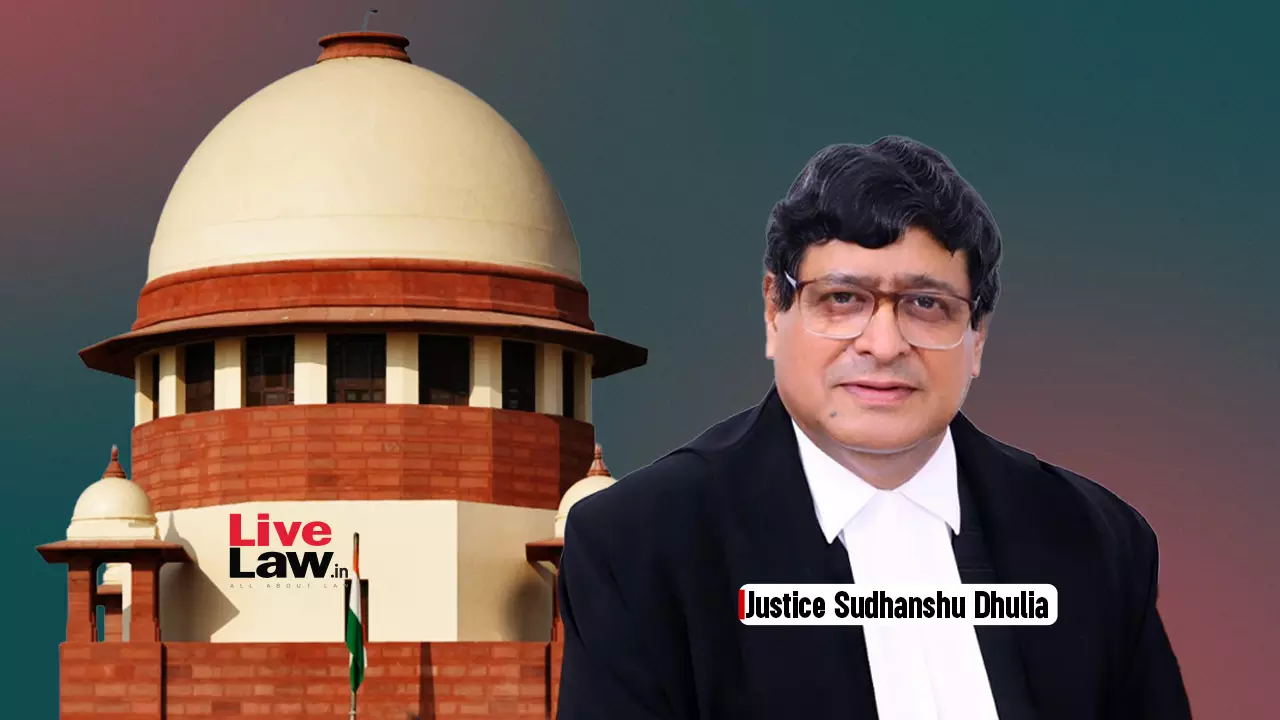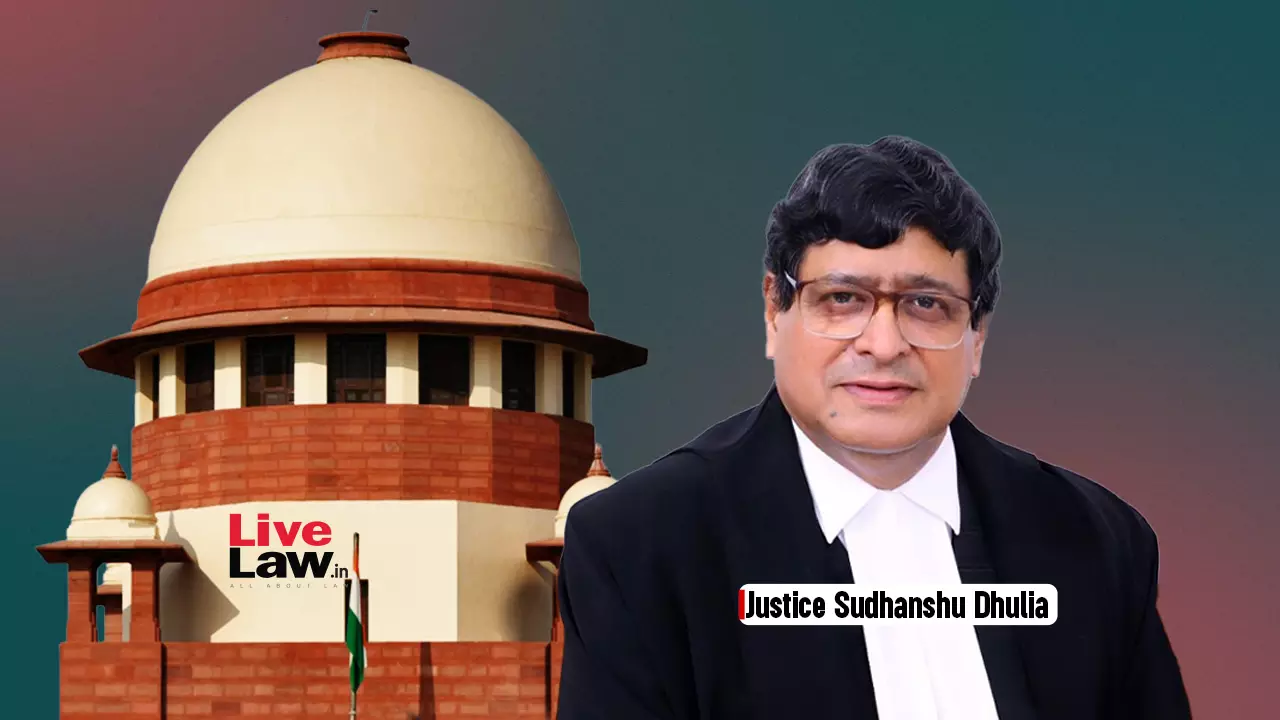An Open Letter Of Thanks To Justice Sudhanshu Dhulia


Dear Judge,
I missed my chance to speak at your ceremonial bench today, but I couldn’t let the curtain fall without saying this. I’ve had the privilege of appearing before you many times, ever since your days as Chief Justice of the Gauhati High Court.
It was there, during the Assam Madarsas matter, that I saw the person behind the robe. When my mother passed away mid-case, you quietly rearranged the sittings so I could complete the rituals of mourning without the case suffering. That is not the kind of act that gets recorded in a law report. But it is the kind that gets recorded in the heart. The Hegde family will never forget.
During the hearings I told you, half in jest, that I hoped to welcome you to Delhi, either as a lawyer or as a judge. Fate, with its own sense of drama, chose the latter.
When you arrived at the Supreme Court, you stepped into a stage that sometimes resembles your brother Tigmanshu’s Wasseypur: intrigue layered over intrigue, sudden plot twists, and the occasional stare-down worthy of the big screen. But you walked through it all without henchmen or factions—your only gang was the Constitution.
That spirit shone again in the Bihar Special Intensive Revision matter. Your questions to the Election Commission were the kind that strip away every layer of pretence, until only the truth remains under the lights. It was riveting theatre, Bihar setting, high stakes, no wasted lines. And then, just as the scene was building to its climax, the script was pulled from your hands. Retirement loomed, the case went to another bench, and the audience India’s voters—was left with an unfinished act. It reminded me of Wasseypur type line: “Yeh Bihar hai… yahan sab kuch adha chhuta rehta hai.”
But this case shouldn’t have been left half-finished, but no one can blame you for not trying.
Both you and Tigmanshu know that the best drama isn’t in shouting, it’s in timing, in precision, in the silences that follow the telling question. Your courtroom had that rhythm. In the hijab case, where I was one of the several counsel who argued, you cut through the noise to the human truth: a young girl’s right to choose. “It is ultimately a matter of choice, nothing more and nothing less,” you wrote. In Wasseypur terms, you refused to let the world tell her, “Beta, tumse na ho payega.”
And when the Urdu language came before you, you wrote it back into India’s inheritance, not as a foreign guest, but as family. Like the rivers of India, languages flow, mingle, and make the soil richer. You reminded us we have no business damming them off.
If Wasseypur was about legacy through bloodlines, yours is carved in dissent and in the defence of rights. You didn’t need a gun to make your point, your pen was the more precise weapon.
So, though I missed my moment at the ceremonial bench, I’ll say it here: thank you. For the judgments, yes. But more for the integrity, the humanity, and the stagecraft of reason you brought to the law.
Sir, aap se ho paaya. Aur kaafi khoobsurti se ho paaya.
With warm regards,
Author is a Senior Advocate, Supreme Court of India. Views Are Personal
